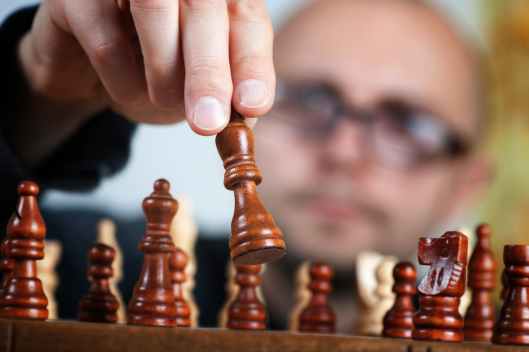Tags
As many of you know, I am using fiction (The Myths of the Veritas) to explore how various values interact. In our story currently, two of the Veritas barely escaped a forest fire and in the process, both injured themselves. This limited their mobility led me, not for the first time, to think about mobility more broadly. How does it relate to strategy and tactics in games, sports, and life? Are our concepts of mobility always useful? How else might one think about mobility?
This is also of interest because I recently fell down and broke some ribs. As the saying goes, “It only hurts when I laugh.” But that’s not very accurate. It also hurts to cough, hiccup, stand up, sit down, turn over, and lie down. I began to write about people with limited mobility and then my own mobility became limited, at least temporarily. So, now, I take a very short break from the Veritas and instead riff on mobility.
In college, one of my quad mates, Andy, happened to be an excellent chess player. I had enjoyed chess ever since I was about 10, but I had never actually studied it much. Andy introduced me to Emmanuel Lasker’s chess manual (an awesome and recommended book, by the way) and to think about chess positionally and strategically. Before that, I had mainly relied on “seeing” combinations (an unexpected and brilliant sequence of moves & counter-moves) as a way of winning.

Photo by Pixabay on Pexels.com
In the process of showing the values of chess, including mobility, Andy introduced me to a game called “Monster.” In this chess variant, one side has all the pieces and plays “normally.” The other side has only a king and four pawns. That’s right. A king and four pawns against a king, queen, eight pawns, two knights, two bishops, and two rooks! It sounds vastly one-sided. But here’s the twist. The side with only a king and four pawns gets two moves to every one move of the other side.
Unless the side with all the pieces plays quite well, it will quickly be overwhelmed by the side with double mobility. Perhaps this should not have been so surprising to me. Imagine you could run twice as fast as a “normally fast person.” In other words, you could run the 100 yard dash in 5 seconds rather than 10 and run 40 yards in 3 seconds. Not only would you be the world’s fastest sprinter, you could also run out most ground balls in baseball; if your basketball team got a rebound on the opponent’s side, they would pretty much be able to just throw the ball to the other side for the world’s fastest fast break. You would be pretty amazing in soccer or American football as well.

Needless to say (?), greater speed isn’t always an asset. In molecular terms, greater molecular velocity means a higher temperature. Humans and other warm-blooded animals employ various mechanisms (shivering, sweating, goose bumps, blood flow regulation, etc.) to keep their temperature fairly constant. If those molecules start moving around twice as fast as they normally do, the organism will quickly die. If the molecules move too slowly, the organism will also die.
As we age, thought, as well as movement, tends to slow down, other things being equal. Of course, other things are seldom equal. If you are highly experienced and well-practiced at something like playing piano, typing, coding, or doing cross-words, you will typically not slow down much and be much faster than a much younger but much less experienced pianist, typist, coder, or cross-word solver.

Photo by Pixabay on Pexels.com
Life is a dance of opposites; e.g., stability and change; duplication and diversity; movement and stasis. Long ago, our ancestors chose mobility and became animals while another whole branch of life chose stability and became plants. Even so, as time-lapse photography reveals, plants do move. Occasionally, they move much more rapidly as anyone who has touched the “triggers” of “touch-me-not” knows.
https://www.youtube.com/watch?v=oJ5dQ_Pdfac
Conversely, sometimes, animals move very little; e.g, bears hibernate; caterpillars form a chrysalis; people sleep (though they move during some phases of sleep). The male angler fish is much smaller than the female and spends its life essentially as an immobile parasite perched on the female until their blood supplies merge.
https://www.youtube.com/watch?v=J4LPmjQoc_A
On the whole though, our great branch of the tree of life evolved to move. And, when we do not move, there are problems for us physically. A complication to watch out for with broken ribs, for instance, is pneumonia. Why? For two reasons, I believe. First, because when it hurts to move generally, you generally move less. I won’t be playing tennis for a few weeks. That can affect overall health and decrease the amount of air that I need to exchange with my lungs as well. Second, it specifically hurts to take a deep breath. So, that also discourages me from taking deep, cleansing breaths. It discourages me, but I do it anyway.
It seems as though we may be touching on a general principle here. When an organism believes, for whatever reason, that the result of an action will be pain, it tends not take that action. Sometimes, it will be otherwise goaded into that action to avoid still great pain, but all the while, that organism will procrastinate, avoid, distract, and only take the painful action if absolutely cornered. It’s good to breathe deep even though it’s painful.
This piece of knowledge turns out to be quite useful in understanding the behavior of others as well. If I observe you to be avoiding doing something even though it has an obvious benefit to you, I then tend to assume that you fear something else even more; you anticipate pain. Just to take a random example, let’s suppose that a court demands that you present a piece of evidence and you refuse even though it would be a chance to clear you name. It’s at least a reasonable assumption, that you fear something else more; e.g., that the truth would implicate you in wrongdoing. You would want to slow everything down as much as possible. This would be particularly effective in the court of public opinion because any one particular topic might eventually become boring to the public.

It could work in more minor cases as well. If you are a kid and you steal cookies from the cookie jar, you could take the tack of denying it, blaming your little brother, suggesting the tooth fairy did it, convince your little brother than he should claim he stole them in order to win your favor, etc. There are a variety of tactics that could be employed. Most kids, however, are taught that honesty is the best policy. Although they don’t instantaneously become ethical on that account, eventually most see, by virtue of their own experience, that honesty really is the best policy.
Even for those who continue to lie in their words, their actions typically betray them.
Mother: “Who stole the cookies?”
Kid: “What cookies? It wasn’t me!”
Mother: “Can I inspect your hands?”
Kid (hastily thrusting his hands behind his back): “It wasn’t me! There’s nothing on my hands! No cookie crumbs! No cookie crumbs! (Kid brushes hands together audibly behind his back). Better check on my sister! She probably did it!”

Photo by Rahul on Pexels.com
The poor kid continues to lie, but the structure of his actions; viz., to block Mom’s investigation, betrays the truth.
It will pretty obvious to Mom. Unless —unless, Mom went into the room already convinced that sister stole the cookies. Because the body is not the only thing that it takes energy to move. It also takes energy, in some sense, to change one’s mind. It also takes energy to block out the truth, of course, but only at first. If you do it often enough, it becomes painless and effortless.
One nearly universal example is the “blind spot” in the human retina. The place where the optic nerve exits the eyeball does not, itself, have any sensors. If you close your left eye, it appears that your right eye has no blind spot. It seems as though you have “full view” of what’s out there. In actuality, some of what you “see” has been constructed by the rest of your nervous system.
https://en.wikipedia.org/wiki/Blind_spot_(vision)
What other blind spots do we have? We like to be mobile. We’re all in a hurry. But if we have blind spots and don’t even know that they’re there, we might just miss a step and break a rib or two. Maybe we’ve learned to ignore the kid brushing the cookie crumbs from his hands behind his back for far too long. But are we also so blind we cannot see the kid who’s still got his hand in the cookie jar? Yes, that one. The one six inches in front of our face.
It might be painful at first. But take a deep breath. Move the fresh air in and out of your lungs. It may hurt a bit, but it’s a cure that’s far better than the disease.
Myths of the Veritas: The Beginning of the First Book
Myths of the Veritas: The Beginning of the Second Book
The Invisibility Cloak of Habit

Enjoyed this very much.
Pingback: Essay Index for 2019 | petersironwood